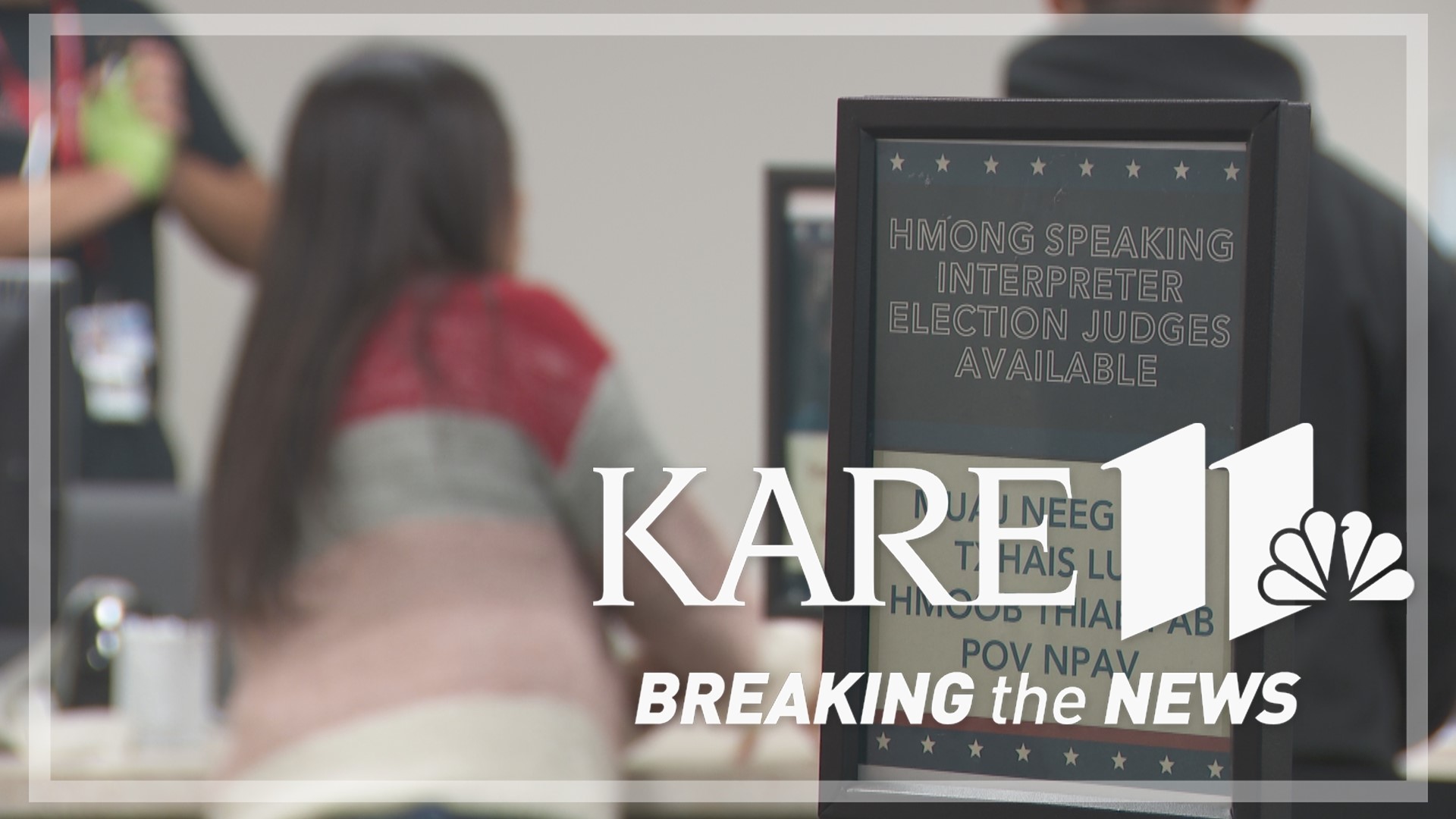ST PAUL, Minn. — Not all the people visiting 90 Plato Blvd. W. in St Paul will need Malia Lee's help.
But for the folks who do, Lee is more than just a friendly face. Lee said she has only been an election judge for the past three weeks. Newly minted, to serve Ramsey County.
"They needed interpreters, so I came to help," she said.
Lee is one of many Hmong-speaking election judges who are specifically trained by Chou Moua through the Hmong Outreach Network to be interpreters on Election Day.
"We base it off a family model," Moua said. "Everybody's an uncle, auntie, grandma or grandpa and we not only help people get voting, but the whole process."
Moua said the interpreting part is tough because there aren't direct translations of phrases like "casting a ballot."
"We call it pov pnav," Moua explained. "Pov is to toss, pnav is your card. Pnav is also homonym for ballot."
But Moua said language aside, just as important, if not more, is cultural competency.
"We're having folks come here as guests who reflect the community," Moua said. "So, people are more comfortable when coming in and saying, 'Oh daughter, I don't know how to vote. Can you show me how? I can't see well, can you read off the names for me?'"
Moua said presence and providing comfort are key for the Hmong community, where election judges sometimes have to convince folks they're empowered to actively participate in the democratic process.
"We come from a community that has a lot of mistrust in government, historical trauma and everything," Moua said. "Realigning and acknowledging that this happened to us, but it doesn't need to happen in the future. Having that shift over and realization can be very tough."
This accommodation, while not new in Ramsey County, is now required after the 2020 census, according to section 203 of the Voting Rights Act.
"Any jurisdiction that identifies so many people needing language services or not speaking English as their primary language is required to provide materials for elections," Ramsey County elections manager David Triplett said. "So, Ramsey County has identified the Hmong language as meeting that threshold and that election-related services should be provided."
"You don't have to speak English to vote, as long as you're 18, a U.S. citizen and not charged with a felony, you have the right to vote," Triplett said. "And we want to make sure we serve all voters when they show up to vote tomorrow."
As for why Moua volunteers his time? While the position is paid, he said he does it for a greater purpose.
"I'll answer that in a Hmong-y way," he said with a smile. "I believe that you can be a good ancestor now. So how would you be a good ancestor? How would you impact future generations? How would you take care of your neighbors now? I believe that if you think about that, you really want to do everything possible to help."
Watch more Breaking The News:
Watch all of the latest stories from Breaking The News in our YouTube playlist:

